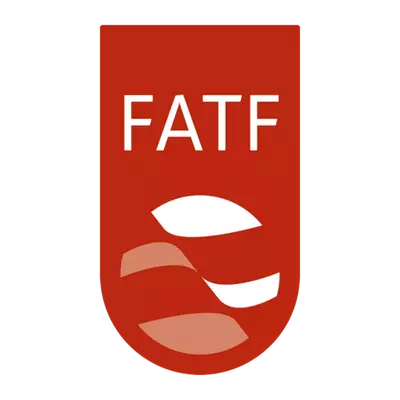Aakar Patel | Why FATF is key to India’s security: Govt must heed its advice over NGOs

Here are two headlines from this month: One was “FATF’s Thumbs-Up To India’s Efforts To Tackle Terror Financing, Money Laundering: Why It Matters”. Another was “FATF Flags Terror Financing Lacunae in Indian NGO Sector”.
Let us see what these mean when put together. If one were to follow the news conscientiously nowadays, they’d find Indian authorities outlawing at least one non-governmental organisation every month. And the closure of these organisations at least finds a mention in the newspapers. There are many others, in fact the majority, that shut down in the darkness with no news of their demise. This is because under this government data on the closure of NGOs has been pulled down from official websites where these things were previously made public. Outrage and protest against the relentless shrinking of civic space by the Indian government has also been criminalised. Deliberate attempts are made to force civil society into submission every day.
But that is exactly what we need to be questioning right now, clearly and loudly. What makes it an especially opportune moment is that the Financial Action Task Force (FATF) has published India’s mutual evaluation report (MER) after a gap of 14 years, calling out India for non-compliance with its standards in regulating the non-profit sector.
Now one may ask: what is the Financial Action Task Force and why is it important? FATF is an inter-governmental body with 40 members mandated to tackle global money laundering, terrorist financing and countering the financing of the proliferation of weapons of mass destruction. It functions by setting international standards for countries and then regularly evaluating and ranking countries’ anti-money laundering and countering of financing of terrorism regime against those standards. India is one of the FATF member states.
FATF is important because in 2023, civil society groups in India documented that the Indian government consistently exploited FATF’s recommendations to either enact or tighten the Foreign Contribution (Regulation) Act (FCRA), Unlawful Activities (Prevention) Act (UAPA) and the Prevention of Money Laundering Act (PMLA) — three laws that have become convenient tools of oppression at the hands of the Indian authorities against those who dare to speak up against the government.
Specifically, FATF operates through a peer-review system to mutually assess the full and effective implementation of its 40 recommendations on money laundering and nine special recommendations on terrorist funding by member states. In line with the mutual evaluation process, a country’s compliance is examined by other FATF member states, resulting in the production of an in-depth assessment report with targeted recommendations to address shortcomings called a mutual evaluation report. The countries who fail to comply with the standards are put under increased monitoring and termed as “high risk jurisdiction”, externally referred to as a “grey or blacklist”. In the past, countries like Turkey and Pakistan have been put on these lists.
After a series of delays, India’s mutual evaluation process started in November 2023 and ended in June 2024. On the conclusion of the evaluation process, FATF published its summary findings. On one hand, FATF lauded India for its “high level of technical compliance” with FATF’s other standards. This is what the first headline we began with refers to. On the other hand, and this is about the second headline, it called on the country to ensure that the measures it has put in place to prevent the non-profit sector from being abused for terrorist financing are implemented in line with a risk-based approach mentioned in FATF’s Recommendation 8.
So, what does this mean?
FATF Recommendation 8 requires that laws and regulations to combat money laundering and terrorism financing target only those non-profit organisations (NPOs) that a country has identified — through a careful, targeted “risk-based” analysis — as vulnerable to terrorism financing abuse, and fall under the FATF definition of NPO. It also recommends that corrective measures must be focused and proportionate to avoid disrupting the legitimate activities of NPOs. However, in complete defiance of Recommendation 8, the Indian authorities have not only passed laws that are severely overbroad in nature but continue to exploit them against civil society organisations and human rights defenders for carrying on their legitimate human rights work.
With a mere 2.2 per cent cases registered under India’s anti-terror law resulting in conviction between 2016 and 2019 and at least 83 per cent of the cases pending before the court by the end of 2022, FATF also called on India to address the delays in concluding prosecutions under UAPA. It recommended the same for prosecutions under the PMLA, which has seen only 31 cases completing trial in the past nine years, indicating a clear lack of efficiency.
These recommendations, however, did not find a mention in the press release issued by India’s finance ministry that self-congratulated the country for an “outstanding outcome” in FATF’s review. The convenient cherry-picking of recommendations by the Indian government is also evident from its continuous cancellation of the FCRA licences of NGOs even after the review and misuse of UAPA and PMLA to shut down critical voices.
India will again be reviewed after three years. In this time, the government needs to ensure that it is reaching out to the non-profit sector and conducting an adequate risk assessment to put in place measures that are focused and proportionate and not overbroad and vague like FCRA. It also needs to put an end to politically motivated prosecutions under India’s anti-terror and money laundering laws. True governance doesn’t lie in discrediting dissent.
Next Story
